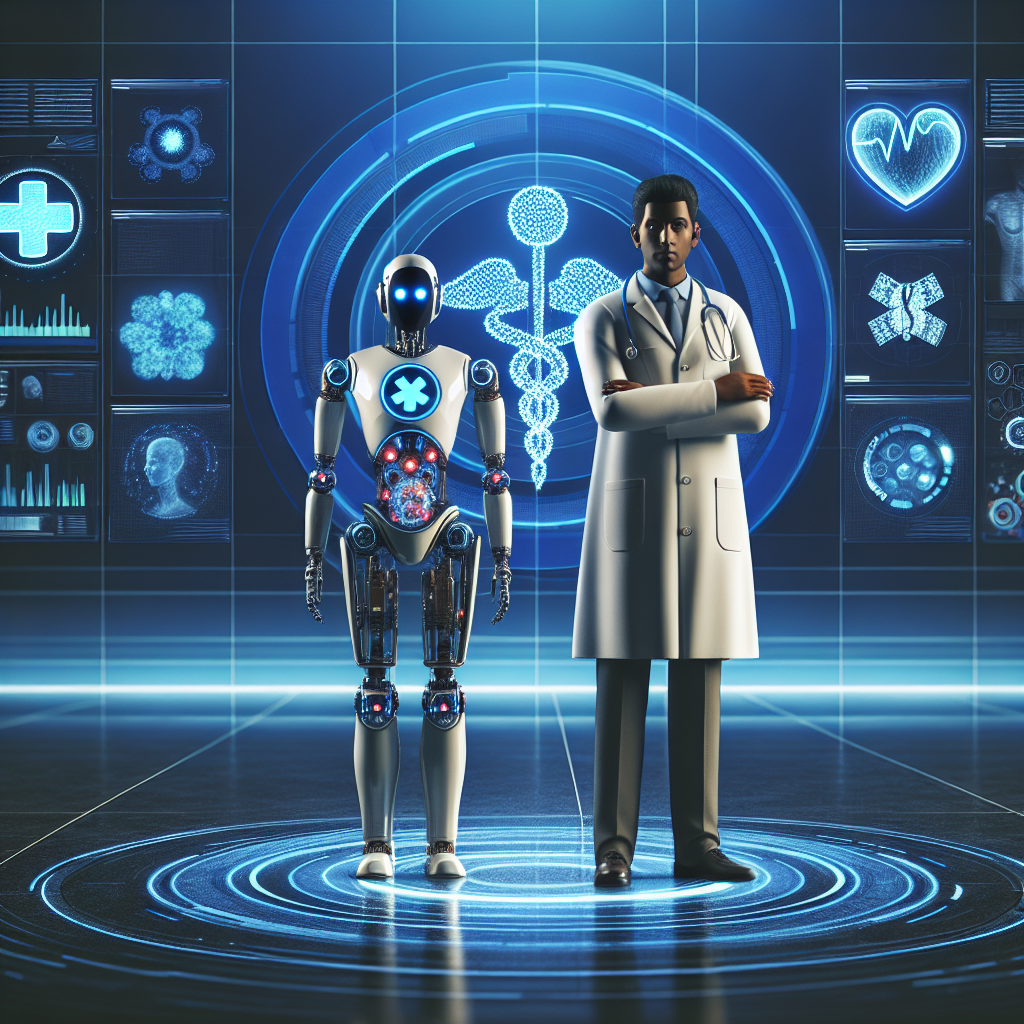Artificial Intelligence (AI) has been transforming various industries, and one of the fields that have seen significant changes is medicine. AI technology is revolutionizing healthcare by providing more accurate diagnoses, personalized treatment plans, and improving patient outcomes. In this article, we will explore how AI is changing the face of medicine and its impact on the healthcare industry.
1. AI in Medical Imaging:
One of the most significant applications of AI in medicine is in medical imaging. AI algorithms can analyze medical images such as X-rays, MRIs, and CT scans to detect abnormalities and assist radiologists in making more accurate diagnoses. For example, AI can help identify early signs of diseases such as cancer, enabling doctors to provide timely treatment to patients. AI-powered imaging tools can also reduce the time it takes to interpret images, allowing healthcare providers to make quicker decisions and improve patient care.
2. Personalized Medicine:
AI is also playing a crucial role in personalized medicine, where treatment plans are tailored to individual patients based on their genetic makeup, lifestyle, and other factors. By analyzing large amounts of data, AI algorithms can predict how a patient will respond to a particular treatment and recommend the most effective course of action. This personalized approach to medicine can lead to better outcomes for patients and reduce the risk of adverse reactions to medications.
3. Drug Discovery and Development:
AI is accelerating the drug discovery process by analyzing massive datasets to identify potential drug candidates more quickly and accurately than traditional methods. AI algorithms can predict how different molecules will interact with biological targets, helping researchers design new drugs that are more effective and have fewer side effects. This has the potential to revolutionize the pharmaceutical industry and bring new treatments to market faster.
4. Remote Monitoring and Telemedicine:
AI-powered devices and applications are enabling remote monitoring of patients, allowing healthcare providers to track vital signs and symptoms in real-time. This technology is especially useful for patients with chronic conditions who need regular monitoring but may not be able to visit a healthcare facility frequently. Telemedicine services are also using AI to provide virtual consultations and diagnoses, making healthcare more accessible and convenient for patients.
5. Clinical Decision Support:
AI algorithms can analyze patient data and medical records to provide clinical decision support to healthcare providers. By considering a patient’s medical history, symptoms, and test results, AI systems can suggest potential diagnoses and treatment options for doctors to consider. This can help healthcare providers make more informed decisions and improve patient outcomes.
6. FAQs about AI in Medicine:
Q: Is AI replacing doctors in healthcare?
A: AI is not replacing doctors but rather augmenting their capabilities. AI technology can assist healthcare providers in making more accurate diagnoses, developing personalized treatment plans, and improving patient care. Doctors will still play a crucial role in overseeing patient care and making treatment decisions.
Q: Is AI in medicine safe and reliable?
A: AI technology in medicine is continuously improving and has shown promising results in various applications. However, it is essential to ensure that AI systems are thoroughly tested and validated before being used in clinical settings to ensure their safety and reliability.
Q: Will AI technology make healthcare more expensive?
A: While the initial investment in AI technology may be costly, it has the potential to reduce healthcare costs in the long run by improving efficiency, reducing medical errors, and optimizing treatment plans. AI can also help prevent unnecessary tests and procedures, leading to cost savings for healthcare providers and patients.
Q: How can patients benefit from AI in medicine?
A: Patients can benefit from AI in medicine by receiving more accurate diagnoses, personalized treatment plans, and improved access to healthcare services. AI technology can help patients receive timely care, reduce the risk of misdiagnosis, and improve their overall health outcomes.
In conclusion, AI is changing the face of medicine by revolutionizing various aspects of healthcare, from medical imaging to personalized medicine and drug discovery. AI technology has the potential to improve patient care, reduce healthcare costs, and bring new treatments to market faster. While there are still challenges to overcome, the future of AI in medicine looks promising, and it will continue to reshape the healthcare industry in the years to come.

